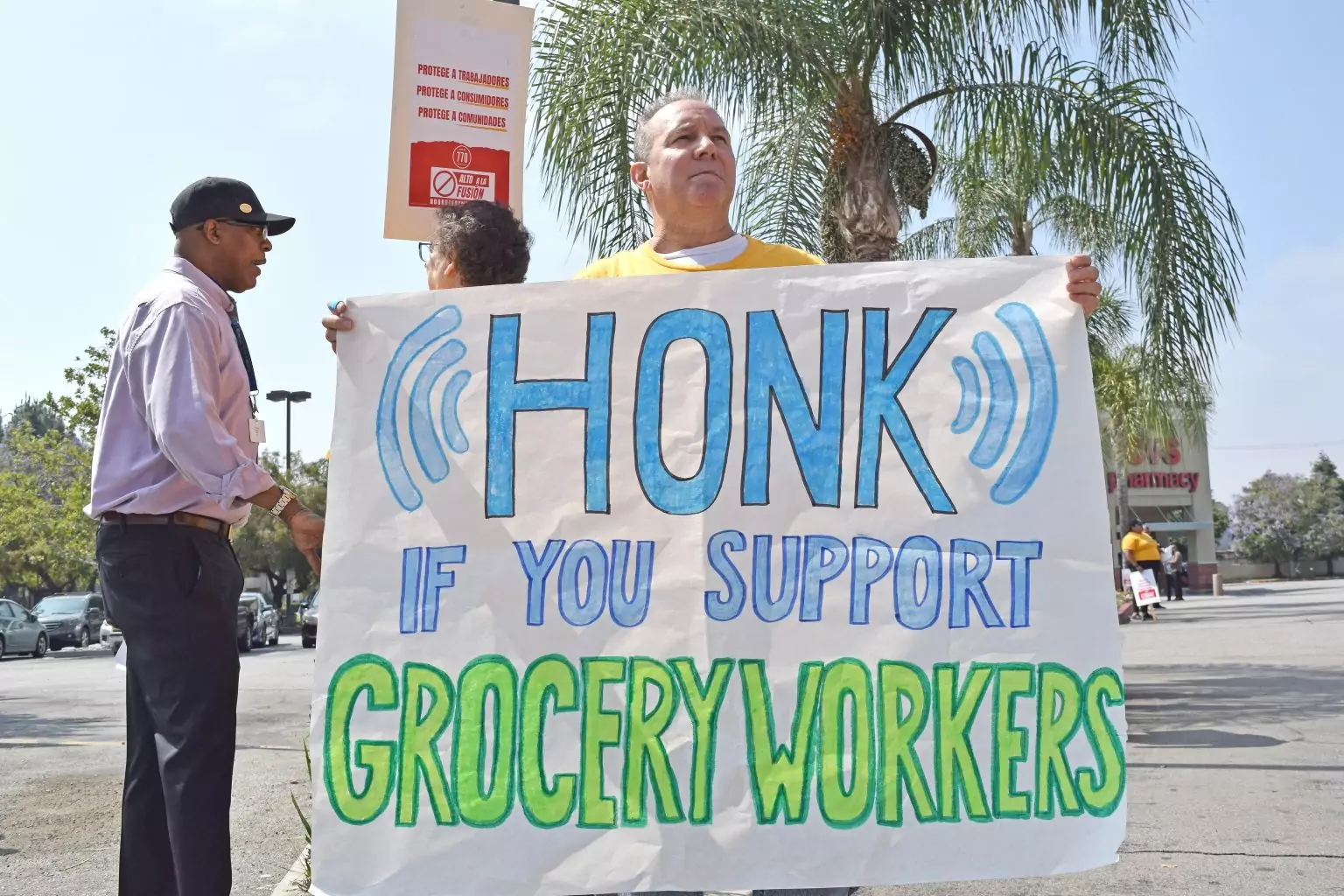
Workers and consumers resist Kroger-Albertsons’ merger
August 24, 2023
Across the nation, workers and consumers have been rallying against the upcoming merger between retail giants Kroger and Albertsons. The FCC’s decision on this merger could reshape the grocery industry and have profound implications for all those affected. As the voices of dissent grow louder, it is essential to recognize the dangers this merger poses to both workers and consumers.
In October 2022, grocery giant Kroger announced plans to buy competitor Albertsons for $24.6 billion.Shortly after announcing the merger, Albertsons announced a $4 billion dividend payout to investors, $1 billion of which went to one private equity firm, Cerberus Capital Management. This is a controversial financial tactic called a dividend recapitalization, where a private equity firm borrows money against a company it owns to pay itself cash dividends. The dividend depleted much of Albertsons’ available cash, and added $1.5 billion in debt. This dividend payout was allowed to proceed despite the merger having to go through an antitrust process and multiple lawsuits by Attorneys General. Now that Cerberus and other investors have pocketed $4 billion from Albertsons, the FCC will have to decide if this merger violates antitrust and consumer protection laws – a process that could last past 2024.
Across the country, grocery store parking lots have become the stage for countless Stop the Merger protests, as concerned workers, consumers, and community members make their voices heard. The Stop the Merger coalition is led by a number of United Food and Commercial Workers International Union (UFCW) and Teamsters locals and has been co-signed by 257 other organizations ranging from unions and labor centers to consumer advocacy groups, community groups, church councils, and local municipalities like the City of Buena Park. These protests are hoping to highlight that the companies that will profit from the merger and from the dividend payout will do so on the backs of consumers that are already burdened with record cost of living increases.
Often, these Stop the Merger actions take place at intersections that have a Kroger brand store near an Albertson’s grocery store. In Los Angeles, workers and community groups gathered outside a Ralphs store (owned by Kroger) that faced a Vons store (owned by Albertsons). If the merger were approved, one of those two stores that are currently in competition could close. Across the country, employees at these stores are anticipating the repercussions of this merger, as corporate consolidations often lead to job losses, reduced benefits, and precarious working conditions.
In addition to the employees at these stores, protestors include consumers and consumer advocacy groups who are fighting back against Kroger having unrestrained price setting power. Consumer groups hope to halt the merger, claiming it violates antitrust law because it would stifle competition, reduce consumer choice and raise prices in the grocery store sector. Protestors are hoping to underscore that all American consumers stand to be affected if this merger is not halted by the FTC.
The FTC has interfered in grocery mergers and acquisitions in the past. In 2015, the FTC required Albertsons and Safeway to sell 168 stores as a condition of their merger. The Stop the Merger actions serve as a reminder to the public and to the FTC that Kroger and Albertsons don’t have the best interest of consumers in mind.
Cerberus Capital Management, the private equity firm that has controlled Albertsons since 2006, has used tactics that hurt consumers to increase profits in the past. Albertsons’ cash has nearly doubled to $3.4 billion since February 2021, even as consumers nationally have faced an 18% increase in food prices over the same period. Cerberus-owned Albertson’s has used inflation as an excuse to raise prices and drastically increase profits, while taking a huge payout with this dividend instead of lowering prices for its customers. Cerberus is set to receive over $5 billion if the FTC approves the merger.
The protests taking place at grocery stores across the country serve as a powerful reminder of the real-life consequences this merger could have on all of us if the FTC does not interfere. To get involved with Stop the Merger or find an action near you visit www.nogrocerymerger.com
